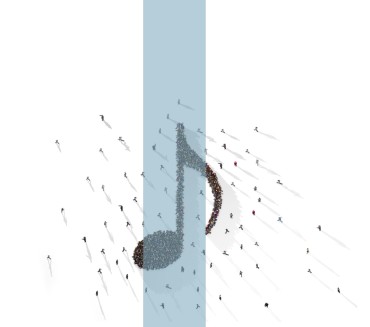1. Introduction. – 2. The “eRecovery” Electronic Public Service: Theoretical and Practical Aspects of Compensation for Certain Categories of Victims in the Russian- Ukrainian war. – 3. Conclusions.

1. Introduction. – 2. The “eRecovery” Electronic Public Service: Theoretical and Practical Aspects of Compensation for Certain Categories of Victims in the Russian- Ukrainian war. – 3. Conclusions.
Background: In the context of war, the issue of compensation for damages caused by the military aggression of the Russian Federation against Ukraine is of utmost relevance, given the unprecedented scale of damage and the number of affected individuals. This article explores one of the existing methods for compensating damages related to the damage or destruction of certain categories of real estate as a result of hostilities, terrorist acts, and sabotage caused by the armed aggression of the Russian Federation against Ukraine through the state electronic public service “eRecovery”. This article explores the main aspects of the operation of this state service, including its limitations and the conditions for receiving compensation.
Additionally, the article reviews a civil case involving a Ukrainian citizen against Ukraine for failure to fulfil its positive obligations and against the Russian Federation for the destruction of housing that resulted in material and moral damage. It also highlights the difficulties that may arise in the process of reparations paid by the Russian Federation.
Protecting the rights and freedoms of individuals residing in Ukraine is the state’s duty, and during wartime, this task takes on new significance, becoming complex and extremely important. One way to provide such protection is through compensation for damages caused by the military aggression of the Russian Federation against Ukraine. However, developing a mechanism for such compensation requires the mobilisation of significant resources and additional research across various fields, primarily to ensure justice. It is essential to explore the legal grounds for compensation, criteria for damage assessment, possible methods and means of compensation, and potential cooperation between national and international institutions.
Methods: This study analyses one of the ways to protect the rights of those affected by the Russian-Ukrainian war through obtaining compensation via the state electronic service “eRecovery”. In particular, it examines the following issues: current limitations regarding the objects eligible for compensation, the principles of operation and development prospects of the “eRecovery” state service, and the development and challenges of national court practices in disputes arising from the war. It also explores the state's positive obligations in the field of human rights and the measures Ukraine is taking to protect and restore the rights of the affected individuals. National and international opportunities for developing a compensation mechanism for the affected and the challenges Ukraine faces before receiving reparations from the Russian Federation are analysed.
Results and conclusions: The results of this study highlight the state's ability to provide adequate protection to individuals affected by the Russian-Ukrainian war, particularly through the “eRecovery” electronic public service. The need for further development of the service has been identified to cover a broader scope of damages that Ukraine can compensate prior to receiving reparations from the Russian Federation, including through cooperation with international partners.
Viktoriia Ivanova
Master of Law, Educational and Scientific Institute of Law, Taras Shevchenko National Univesity of Kyiv, Kyiv, Ukraine
https://orcid.org/0009-0009-1556-9359
Corresponding author, responsible for conceptualization, methodology and writing.
Competing interests: Although Mag. Ivanova serves as a Social Media Editor at AJEE, her publication was subjected to the full peer review process, and she was not involved in the decision-making.
Disclaimer: The author declare that her opinion and views expressed in this manuscript are free of any impact of any organizations.
1. Izarova I, Uhrynovska O and Hartman Yu, ‘Compensation for War Damages: A Study of the Issue Using the Example of the Armed Aggression of the Russian Federation Against Ukraine’ (2023) 126(2) Bulletin of Taras Shevchenko National University of Kyiv, Legal Studies 34, doi:10.17721/1728-2195/2023/2.126-5.
2. Shvadchak A, ‘International Register of Damage: Addition to eRecovery or Alternative?’ (Transparency International Ukraine, 31 May 2024) <https://ti-ukraine.org/en/ news/international-register-of-damage-addition-to-erecovery-or-alternative/> accessed 25 July 2024.
Вступ. В умовах війни питання відшкодування шкоди, завданої воєнною агресією Російської Федерації проти України, є надзвичайно актуальним з огляду на безпрецедентні масштаби шкоди та кількість постраждалих. У статті досліджено один із наявних способів відшкодування збитків, пов’язаних із пошкодженням або знищенням окремих категорій нерухомого майна внаслідок воєнних дій, терористичних актів, диверсій, спричинених збройною агресією Російської Федерації проти України, за допомогою державної електронної публічної послуги «єВідновлення». У статті було досліджено основні аспекти функціонування цієї державної програми, зокрема її обмеження та умови отримання компенсації.
Ключові слова: компенсація за зруйноване житло, репарації, російсько-українська війна, електронний державний сервіс «єВідновлення», позитивні зобов’язання, захист громадянських прав під час війни.
Date of submission: 18 Jul 2024
Date of acceptance: 01 Aug 2024
Date of Online First publication: 09 Aug 2024
Date of publication: 15 Nov 2024
Whether the manuscript was fast tracked? - No
Number of reviewer report submitted in first round: 2 reports
Number of revision rounds: 2 rounds, revised version submitted 30 Jul 2024
Ivanova V, ‘The First Steps in Implementing the Ukrainian Strategy for Restoring the Rights of Owners of Certain Categories of Real Estate Damaged or Destroyed as a
Result of the Armed Aggression of the russian federation’ (2024) 7(4) Access to Justice in Eastern Europe 469-81 <https://doi.org/10.33327/AJEE-18-7.4-n000102>